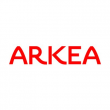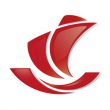LSE targets Latin American business through Peru deal
The London Stock Exchange has entered a partnership with Peru’s Lima Stock Exchange, under which it will provide trading and smart order routing technology to the South American exchange.
Competition over the opportunity to sell trading technology to emerging market exchanges around the globe has become commonplace in recent years, as exchanges in the US and Europe look for alternative source of income to compensate them for the loss of market share they have suffered in their home markets.
The London Stock Exchange is the owner of MillenniumIT, a Sri Lanka-based firm that has provided the technology for South Africa’s Johannesburg Stock Exchange, as well as market surveillance tools for Bursa Malaysia within the last few months. The tools LSEG will provide to Lima include smart order routing technology via its Millennium Exchange and Millennium SOR systems.
“We are very conscious of the relevance of technology in our business,” said Francis Stenning, chief executive at Lima Stock Exchange. “That is why we believe this upgrade in our electronic trading platform and order routing system will take us to the forefront of technology. This will allow us to take advantage of more globally connected markets, including MILA.”
The Peruvian exchange is a member of MILA – Mercado Integrado Latino Americado – a regional project between the exchanges of Chile, Colombia and Peru that aims to increase liquidity by banding together and sharing order routing, access and membership between each other’s markets. MILA has been seen as a tool to attract attention to Latin America’s smaller markets, which have been overshadowed by the enormous success of Brazil in recent years. Mexico is currently in the process of joining MILA, with the expectation that it will become a full member in 2014 once the necessary amendments to its securities rules have been completed.
The deal with Lima represents a useful win for the LSEG, which competes with rivals Nasdaq OMX and NYSE Technologies, the commercial technology arm of NYSE Euronext, as well as Deutsche Börse, which has successfully marketed its Xetra trading platform in eastern Europe.
Technology services made up just 6.5% of the LSEG’s revenue in 2012, according to the group’s annual statement. However, its traditional capital markets business represented less than half of the total, at 37%. The remainder came from post trade services (28%), information services (27%) and other miscellaneous services (12.9%).












































